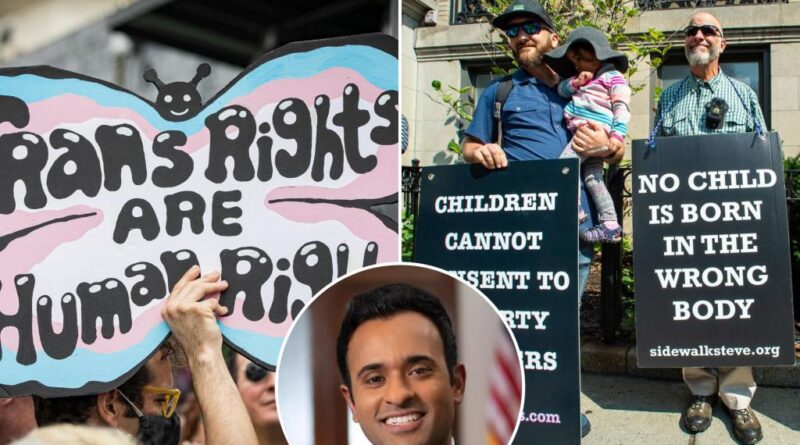Americans need to seek common ground

The earnest version of the underlying transgender debate is really about compassion versus cruelty. Proponents of each side believe they’re on the side of compassion. No amount of argument will persuade a committed soldier on the other side, because reason wasn’t the foundation for their views in the first place.
But I think a certain demonstration of empathy, without compromising on the need to protect children from physical or chemical intervention or the integrity of women’s sports, ends up going a long way.
One of the biggest surprises of my time on the campaign came from none other than the mainstream press.
During the campaign cycle, networks “embed” young reporters with major presidential campaigns to attend every event and press conference for their coverage. One of these embeds was a reporter from a major news organization.
Let’s call her Kori. Kori was particularly hardworking — never missing an event and always jumping at the chance to ask a question.
Kori would frequently challenge me on the issue of gender identity, particularly on my view that transgenderism is a mental health disorder.
At one event in Iowa, I had fielded some particularly animated questions about transgenderism being foisted onto children in schools.
There were a number of parents in the room who were understandably frustrated and publicly voiced their concerns.
For my part, I responded without caveat that transgenderism is a mental health condition and needs to be treated as such.
After that event, Kori asked to have a one-on-one conversation.
Her reporting always called balls and strikes fairly. So when she approached me in an uncharacteristic manner, I took the time to talk to her. I paused and saw her eyes half-filled with tears, so I stepped aside from the crowds. It turned out Kori wanted to have a personal conversation.
“I’ve really enjoyed getting to know you, and especially Apoorva and the kids, this year. But I just have to ask you: What gives you the confidence that there are really just two genders?” Kori asked me, slightly trembling.
Yes, I was talking on the record to a mainstream reporter who was recording what I said, but this wasn’t really a conversation with the press. It was a personal conversation with someone whom I had grown to respect as a person, and I believe had grown to respect my family and me too.
And Kori was clearly upset.
I explained my view that it started with biology. If you have two X chromosomes, with a female reproductive system, you’re a woman. If you have an X and a Y chromosome, with a male reproductive system, you’re a man. Period.
Then it hit me: Kori wasn’t feigning indignation or manufacturing a gotcha question. She was talking to me because she identified as nonbinary herself.
She felt hurt by my comments, not sanctimoniously on some unknown other person’s behalf, but on her own behalf. She was hurt not because she detested me, but because — I think — she respected me.
So I asked Kori about her own identity. She said she identified as nonbinary. I asked her when she landed at that realization, and she said it was late in high school.
When I asked what was different about her experience relative to a young woman who discovers different sexual preferences than most of her peers, she paused and became pensive. She didn’t have a ready answer, and I didn’t intend to push her on this.
We instead talked about her family. She grew up in a single-parent household in Baltimore to a single black mother. Her father was imprisoned for many years, which strained their relationship.
She didn’t come from the kind of background where you’d predict she’d graduate from college, much less go on to become a journalist who, in my opinion, was among the very best in her field.
We didn’t really come to much of a resolution, other than to smile and politely agree we would continue the conversation. I’ve seen Kori several times since then. She’s the only press embed I’ve regularly stayed in touch with after the campaign ended. When I visited “The Breakfast Club” for a podcast in New York City, I called Kori and invited her to join me backstage, not as a member of the press, but as a friend.
She accepted and my intention had been to finish the conversation we began in Iowa, but we ended up talking about her new apartment and the current beat she was assigned to since my campaign ended.
There can be unity when there isn’t uniformity, Rev. Martin Luther King Jr. once said. Maybe Kori and I will finish our discussion from Iowa one day.
Maybe we won’t. But when I remember my relationship with Kori, my debate with her on transgenderism certainly won’t be the most important part.
Excerpted from TRUTHS: The Future of America First by Vivek Ramaswamy. Copyright © 2024 by Vivek Ramaswamy. Reprinted by permission of Threshold Editions, an imprint of Simon & Schuster, LLC.

